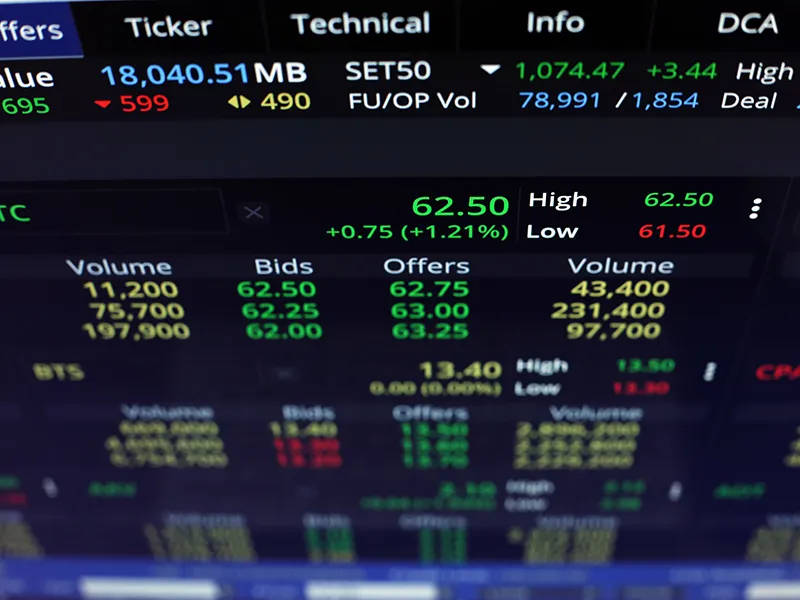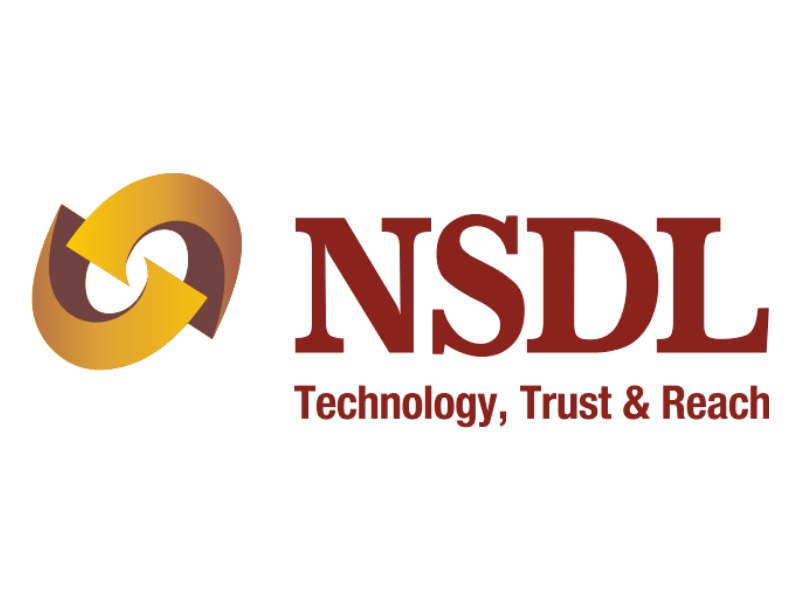
Every investor in the country would have come across the term ‘depositories’ while investing in the country’s financial markets. There are two main depositories in India, namely, National Securities Depositories Ltd (NSDL) and Central Securities Depositories Ltd (CDSL). Both these hold every investor’s financial securities, such as stocks, bonds, etc in dematerialised format. These depositories facilitate stock trading through demat and trading accounts.
For investors and other stakeholders who want to know the difference between NSDL and CDSL, here we have put together some useful information and key aspects that differentiate these two depositors.
What are depositories and depository participants?
NSDL and CDSL:
- are depositories
- maintain ownership details of financial securities
- deal with investors via Depository Participants (DPs)
A DP acts as an agent/intermediary of the depository to connect with the clients or investors. DPs are brokerage firms that are registered with the respective depository as per regulations of SEBI Act. While investing in the stock markets, an investor must open a demat account with a DP to utilize the services offered by depositories.
DPs offer services like:
- demat accounts
- trading platforms
- reports of market movements
- other value- added services
What is NSDL?
NSDL, or National Securities Depository Limited, is the first and largest depository in India. It offers electronic share holding facilities, helping to eliminate the need for physical share certificates. This makes the process of holding and trading securities more efficient, secure, and convenient for investors.
What is CDSL?
CDSL stands for Central Depository Services Limited, which is a depository that provides electronic holding of securities in India. It offers various services like account opening, dematerialization, rematerialization, settlement of trades, and other value-added services to investors through its depository participants. CDSL is one of the two depositories in India, along with NSDL.
What is the role of depositories in financial markets?
NSDL and CDSL, which are the main depositories in the Indian financial markets, function for securities just like how banks function for cash and fixed deposits. Just like an investor parks his cash in a savings account with a bank, investors who want to invest in shares can maintain them in dematerialised form with either of the two depositories.
Demat account:
In securities transactions, the demat account acts as an intermediary, which helps facilitate day-to-day stock trading for retail investors. The depositories NSDL and CDSL hold such shares on behalf of investors.
Dividend distribution:
CDSL and NSDL also play a key role whenever companies perform dividend distribution to investors. Any company can remit the dividend to its shareholders only once it has all the information pertaining to the existing shareholders. Depositories play an important role in this regard, since they have all the information related to current investors/shareholders in all listed companies.
Before the advent of technology and introduction of demat accounts, whenever a share had to be bought or sold, the share certificates had to be transferred from the old to new investors. With the digitisation of shares, the buying and selling can now be done electronically and transactions are recorded between two demat accounts.
What are the differences between CDSL and NSDL?
While the functionalities of CDSL and NSDL are mostly similar, there are some characteristics that differentiate these two depositories. Here are some of the differences to note:
| CDSL | NSDL | |
| Establishment | CDSL was established in 1999 | NSDL was the first depository in India and was established in 1996 |
| Promoters | BSE is the main promoter of CDSL | NSDL’s promoters are IDBI Bank, UTI, and NSE |
| Stock Exchange(Exchanges can go with either depository for trading and settlement of securities) | CDSL is associated with BSE | NSDL functions for NSE |
| Demat Account Format | CDSL has 16 numeric digits in Demat account numbers. | NSDL has alphanumeric Demat account numbers, starting with ‘IN’ and 14 digit numeric digits. |
| Registered Depository Participants | CDSL has 599 registered DPs. | NSDL has 278 DPs. |
| Investor Accounts | CDSL had nearly 4 crore active investor accounts as of 2021. | NSDL had nearly 2.25 crore investor accounts in 2021. |
Which is more preferred – NSDL or CDSL?
As we can see from the above table, apart from some characteristics, there is not much difference between CDSL and NSDL. Both depositories are registered and regulated by the Securities and Exchange Board of India. Since they offer almost identical services to investors, it is tough to differentiate the two and prefer one over the other.
While investing in stock markets, an investor does not have any say as far as choice of depository to open a Demat account is concerned. This is because the investor’s broker or the respective depository participants are responsible for this decision making. A depository participant or broker will choose between NSDL or CDSL on behalf of investors, by comparing both in terms of convenience, accessibility, and which one is economical for opening a Demat account with.
Conclusion
Any eligible investor in India can easily open a demat and a trading account with a DP linked with NSDL or CDSL. Investors who are new to the stock markets must remember to opt for a trusted and reliable stock broker who can offer new-age trading platforms and seamless demat account opening process.
FAQs
It is simple to identify which depository you have your Demat account with. If the account number is 14 digits prefixed with ‘IN’, it is with NSDL. If the account is 16-digits, then it is with CDSL.
Yes, both NSDL and CDSL are government bodies that come under the regulation of SEBI.
To open a Demat account for securities trading or investment, you must reach out to a registered broker. The broker will process the KYC and account opening formalities with the depository participants to open a Demat account on your behalf.
A Demat account is required to maintain securities in digital or dematerialized format.
Can I open two Demat accounts with CDSL and NSDL?
Yes, you can open two separate Demat accounts with CDSL and NSDL each. However, you cannot open two Demat accounts with the same depository participant.


























